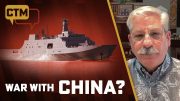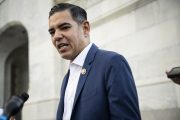
Despite 97 percent of Puerto Ricans voting for statehood in Sunday’s plebescite, the chances of adding the island as the country’s 51st state are between slim and none.
The island’s voters had three choices on Sunday’s ballot: Stay as a U.S. territory, move ahead with statehood, or seek full independence as a sovereign nation. This is the fifth vote on the issue since 1967, with the first three failing to gain a majority vote for statehood. That majority is required for the U.S. Congress to consider it. The fourth vote was marred by some 500,000 voters boycotting it to protest the ballot allegedly being rigged in favor of statehood.
The chances this time aren’t any better. The island’s economy is shrinking, its finances are a shambles, and since 2007, it has lost 20 percent of its jobs and 10 percent of its population. Thanks to its triple-tax-exemption (interest is free from federal, state, or local income taxation), individual investors and tax-exempt bond funds have been soaking up the island’s debt offerings for years, allowing it to spend far beyond its means. Those funds have enabled politicians to install a welfare state that has turned vast numbers of the island’s population into dependents on the government.
At present it owes more than $122 billion in bonds and unfunded pension liabilities, twice the island’s total economic output in a year. It is unable under current law to declare bankruptcy so the U.S. Congress did the next best thing: It set up a commission last year to “study” the matter, make recommendations, and push the island to settle with its investors.
When those negotiations failed, the commission put the island into the hands of a federal bankruptcy judge in May, creating vast uncertainty not only for the island’s inhabitants (half of whom live below the poverty level) and its pension plan beneficiaries, but also for the banks and investment funds holding paper that the three credit agencies rate as junk.
The island’s new governor, Ricardo Rossello, ran on a platform for statehood, holding that the only way out was to put the island’s problems onto the backs and into the pockets of the American taxpayer. If successful in gaining statehood, Puerto Rico would be poorer than Mississippi, the poorest of the American states, and therefore would be the likely recipient of federal largesse by the truckload. As Rossello said, “The plebiscite has to be for a future solution to the status issue.… This goes to the roots of what it means to be an American, what it means to be part of a nation that shares the same democratic values, human rights [and] freedom.” He didn’t finish the sentence: Statehood would also go a long way to solving the island’s fiscal problems by “sharing” them with American taxpayers. There would be increases in Medicaid funding, there would be welfare benefits, tax credits, unemployment insurance, and a whole raft of other federal programs that aren’t currently available to the territory. Appropriately, the governor’s political party is called the New Progressive Party.
There are financial interests heavily involved behind the scenes. Before the commission took over from the governor, Rossello had tried to come to terms with the investors holding the island’s bonds. When he suggested that they take a one-third haircut on their investments, the commission said that was too generous, that it was letting them off the hook too easily. When he upped the ante to half, Franklin Advisors and Oppenheimer Fund, the two largest mutual funds holding the island’s debt, pushed back, saying it was too much.
Meantime, right after the credit rating agencies reduced the island’s bonds to junk status, vulture funds swooped in to buy up many of the island’s heavily discounted bonds, hoping/thinking/planning/expecting to reap a windfall when the U.S. taxpayers finally bailed out the island and paid off the bonds at face value. The names of those vulture funds should be familiar: insider John Paulson’s Paulson and Company, David Tepper’s Appaloosa Management, Marathon Asset Management, Blue Mountain Capital, and Monarch Alternative Capital. Each has serious ties to Wall Street, and each makes a handsome living buying low and selling high, especially the bonds of failed or failing states such as Puerto Rico.
One of the serious problems with Sunday’s vote is that, with so many voters boycotting the election over allegations of ballot fraud slanted to favor statehood, only 23 percent of registered voters actually cast a ballot. That raises the question of legitimacy of the vote. In any event, the vote is non-binding on the U.S. Congress, which is just fine with Republicans. If statehood were somehow to be granted to Puerto Rico, it would send two liberal senators and five liberal representatives to the House. They would, after all, be representing 3.4 million people who are used to their entitlements, even if they didn’t earn them and the government can’t afford them. As for the investors and mutual funds that purchased the island’s bonds and the vulture funds who bought them at a huge discount, they are going to have to wait for the country’s bankruptcy proceedings to be completed to learn just how much they will lose.
Photo of Old San Juan, Puerto Rico: National Park Service via Wikipedia
An Ivy League graduate and former investment advisor, Bob is a regular contributor to The New American magazine and blogs frequently at LightFromTheRight.com, primarily on economics and politics. He can be reached at [email protected].
Related articles:
Puerto Rico Headed to Bankruptcy Court, Likely Costing Investors Billions




